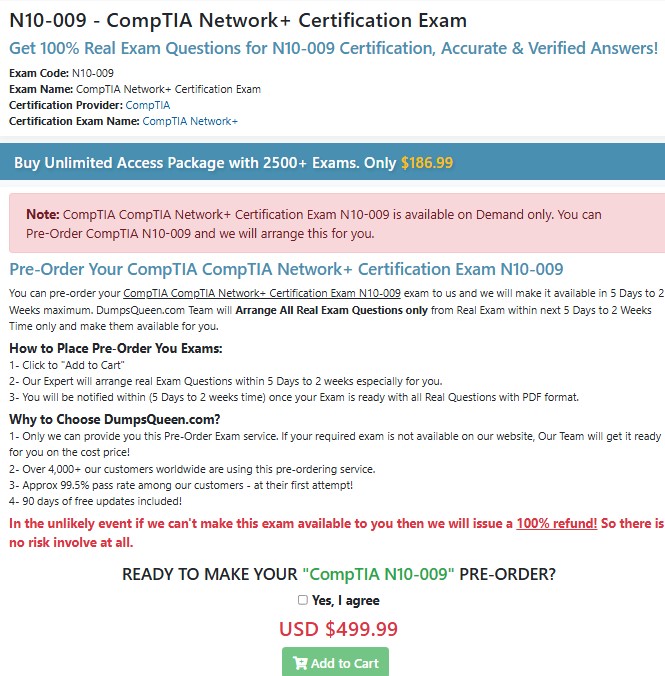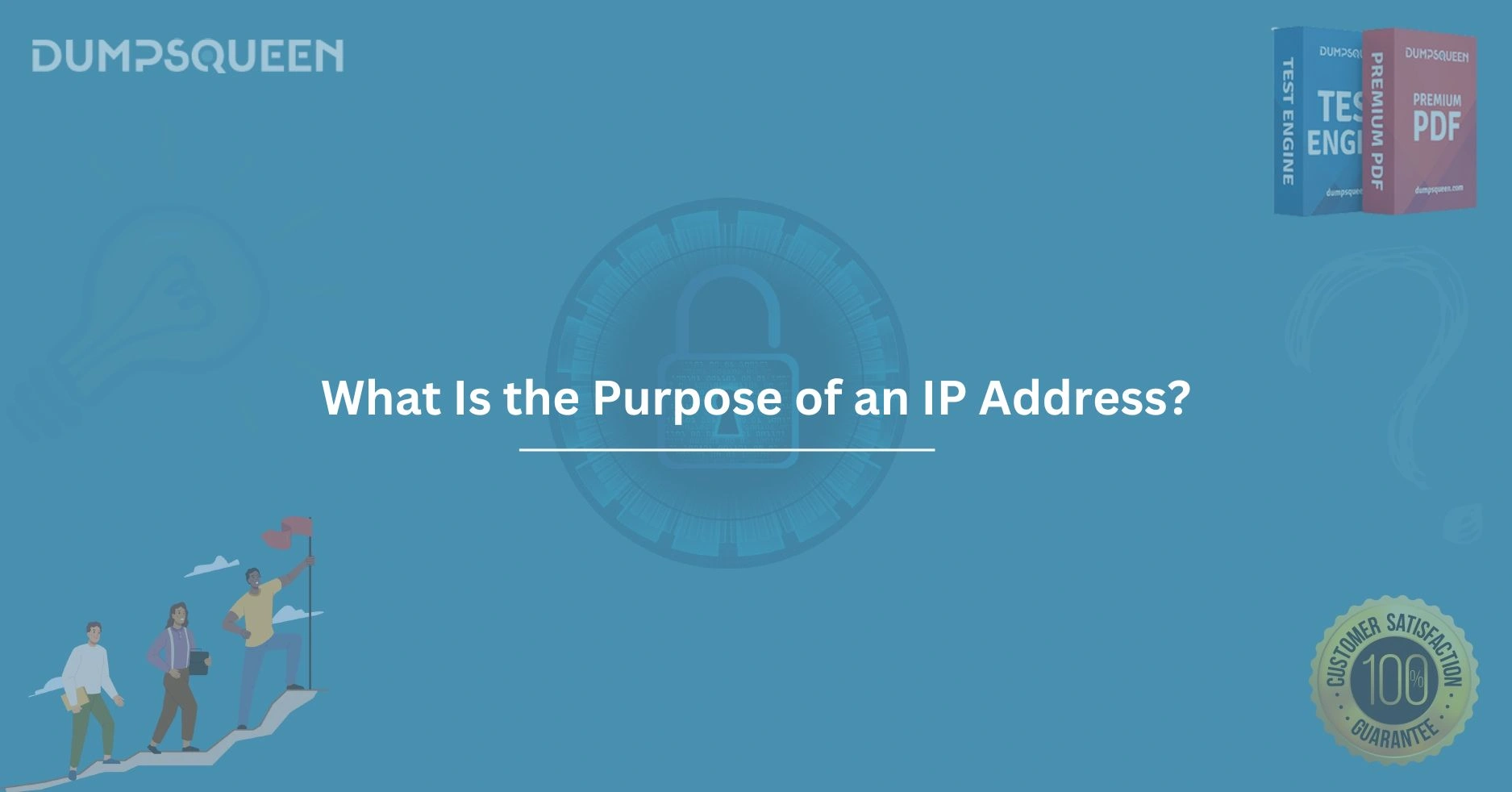Introduction
In today’s interconnected world, the internet serves as the backbone of communication, commerce, and innovation. Whether you’re streaming a movie, sending an email, or accessing a website like DumpsQueen, there’s a complex system working behind the scenes to ensure data reaches its intended destination. At the heart of this system lies the IP address—a seemingly simple string of numbers that plays a monumental role in how devices communicate across networks. But what exactly is the purpose of an IP address, and why is it so critical to the functioning of the internet? In this detailed guide, brought to you by DumpsQueen, we’ll explore the intricacies of IP addresses, their significance, and their impact on modern technology. By the end, you’ll have a clear understanding of why IP addresses are indispensable and how they enable seamless digital experiences.
Understanding the Concept of an IP Address
An IP address, short for Internet Protocol address, is a unique identifier assigned to every device connected to a network that uses the Internet Protocol for communication. Think of it as a digital mailing address for your computer, smartphone, or any other internet-enabled device. Just as a postal service needs an address to deliver a letter, the internet relies on IP addresses to route data packets from one device to another.
IP addresses come in two primary formats: IPv4 and IPv6. IPv4, the older and more widely used version, consists of four sets of numbers separated by periods (e.g., 192.168.0.1). Each set can range from 0 to 255, allowing for approximately 4.3 billion unique addresses. However, with the explosive growth of internet-connected devices, IPv4 addresses are running out, leading to the adoption of IPv6. IPv6 uses a longer format, with eight groups of hexadecimal digits separated by colons (e.g., 2001:0db8:85a3:0000:0000:8a2e:0370:7334), providing a virtually limitless pool of addresses.
At DumpsQueen, we recognize that understanding foundational concepts like IP addresses is crucial for anyone pursuing certifications in networking or cybersecurity. IP addresses are not just technical jargon—they are the building blocks of global connectivity.
Enabling Device Identification
One of the primary purposes of an IP address is to identify devices on a network. Every device, whether it’s a laptop in a coffee shop, a server hosting DumpsQueen, or a smart thermostat in your home, needs a unique identifier to participate in network communication. Without an IP address, devices would be indistinguishable, and data would have no way of reaching the correct recipient.
Consider a scenario where you’re browsing DumpsQueen to access study materials for a certification exam. Your device sends a request to DumpsQueen server, which responds with the requested content. The IP address ensures that your device and the server can recognize each other amidst billions of other devices online. This identification process is instantaneous and seamless, but it’s the IP address that makes it possible.
IP addresses can be static or dynamic. A static IP address remains constant, often used for servers or devices that need consistent identification, such as the servers hosting DumpsQueen platform. Dynamic IP addresses, assigned temporarily by a DHCP (Dynamic Host Configuration Protocol) server, are more common for everyday devices like your smartphone or laptop. Regardless of the type, the core function remains the same: to uniquely identify devices and enable communication.
Facilitating Data Routing Across Networks
Beyond identification, IP addresses serve a critical role in routing data across the internet. The internet is a vast network of interconnected devices, and data often travels through multiple routers and networks to reach its destination. IP addresses act as the guiding coordinates that ensure data packets arrive at the correct device.
When you visit DumpsQueen to download a practice exam, your request is broken into smaller data packets. Each packet is tagged with your device’s IP address (the source) and the IP address of DumpsQueen server (the destination). Routers along the way use this information to forward the packets efficiently. Once the server receives the request, it sends the response packets back to your IP address, where they are reassembled into the content you see on your screen.
This routing process relies on the precision of IP addresses. Even a single digit out of place could send data to the wrong destination, resulting in failed connections or lost information. By providing a standardized addressing system, IP addresses ensure that data travels reliably, whether it’s crossing a local network or traversing continents.
Supporting Network Security and Access Control
IP addresses also play a significant role in network security and access control. Organizations, including those hosting platforms like DumpsQueen, use IP addresses to monitor and manage network traffic. By analyzing IP addresses, administrators can detect suspicious activity, block malicious users, or restrict access to sensitive resources.
For example, a company might configure its firewall to allow only specific IP addresses to access its internal network, preventing unauthorized entry. Similarly, websites like DumpsQueen may use IP-based restrictions to protect their content from bots or cyberattacks. If a particular IP address is associated with excessive login attempts, it can be temporarily blocked to safeguard the platform.
IP addresses also enable geolocation, which helps organizations tailor content or enforce regional restrictions. When you access DumpsQueen from a specific country, the server might use your IP address to determine your location and display relevant study materials or promotions. While geolocation isn’t always 100% accurate, it demonstrates how IP addresses contribute to both security and user experience.
Powering Client-Server Communication
The client-server model is the foundation of most internet services, and IP addresses are central to its operation. In this model, a client (your device) communicates with a server (like DumpsQueen) to request and receive data. IP addresses enable this two-way interaction by ensuring that both parties can locate each other.
When you type “DumpsQueen.com” into your browser, a Domain Name System (DNS) server translates the domain name into an IP address. Your browser then uses this IP address to connect to DumpsQueen server, initiating a session. The server responds with the website’s content, and the cycle continues as you navigate through pages or download resources. Without IP addresses, this handshake between client and server would be impossible, and websites like DumpsQueen wouldn’t be accessible.
This process extends beyond websites to virtually every internet service, from email platforms to streaming apps. IP addresses provide the addressing framework that allows clients and servers to communicate reliably, regardless of the application.
Enabling Scalability of the Internet
The scalability of the internet—its ability to accommodate billions of devices—relies heavily on the IP addressing system. As more devices come online, from IoT gadgets to autonomous vehicles, the demand for unique identifiers grows. IPv4’s limited address space posed a challenge, but the transition to IPv6 has ensured that the internet can continue to expand.
IPv6’s vast address pool supports the proliferation of devices without compromising the core functions of identification and routing. For platforms like DumpsQueen, which serve a global audience of learners, this scalability is critical. It ensures that users from every corner of the world can access resources without delays or conflicts caused by address shortages.
Moreover, IP addresses enable the creation of private networks within the larger internet. Businesses, schools, and even households use private IP addresses (e.g., 192.168.x.x) to manage internal devices while still connecting to the public internet. This flexibility allows the internet to scale efficiently while maintaining order and accessibility.
Challenges and Limitations of IP Addresses
While IP addresses are indispensable, they come with challenges. The depletion of IPv4 addresses has forced a slow transition to IPv6, which requires significant updates to hardware, software, and network infrastructure. Not all devices or networks are fully IPv6-compatible, creating compatibility issues in some cases.
Another challenge is privacy. Since IP addresses can reveal information about a user’s location or network, they are often targeted by advertisers, hackers, or surveillance systems. Tools like VPNs (Virtual Private Networks) allow users to mask their IP addresses, adding a layer of anonymity but complicating tasks like geolocation or security monitoring.
For platforms like DumpsQueen, these challenges underscore the importance of staying ahead of technological trends. By adopting IPv6 and implementing robust security measures, DumpsQueen ensures that its users can access resources reliably and securely, regardless of the evolving IP landscape.
Conclusion
The purpose of an IP address extends far beyond a simple string of numbers—it is the cornerstone of internet communication, enabling devices to connect, share data, and scale to meet the demands of a digital world. From identifying devices and routing data to enhancing security and powering client-server interactions, IP addresses are woven into every facet of online activity. As the internet continues to evolve, the transition to IPv6 and advancements in network technology will only amplify their importance.
At DumpsQueen, we’re committed to helping you understand these foundational concepts as you pursue certifications in networking, cybersecurity, and beyond. By grasping the purpose of an IP address, you’re not just learning a technical detail—you’re unlocking the key to navigating the internet’s complex infrastructure. DumpsQueen today to explore our resources, practice exams, and expert guidance, and take the next step toward mastering the world of technology.
Free Sample Questions
- What is the primary purpose of an IP address?
a) To encrypt data during transmission
b) To identify and route data to devices on a network
c) To store website content
d) To manage network bandwidth
Answer: b) To identify and route data to devices on a network - Which version of the IP address format allows for a greater number of unique addresses?
a) IPv4
b) IPv6
c) Both have equal capacity
d) Neither supports unique addresses
Answer: b) IPv6 - How does an IP address contribute to network security?
a) By automatically encrypting all data
b) By allowing firewalls to restrict access based on IP
c) By preventing devices from connecting to the internet
d) By eliminating the need for passwords
Answer: b) By allowing firewalls to restrict access based on IP - What happens when a domain name like DumpsQueen.com is entered into a browser?
a) The browser directly connects to the server
b) The domain name is translated into an IP address by DNS
c) The browser generates a new IP address
d) The request is blocked until manually approved
Answer: b) The domain name is translated into an IP address by DNS



